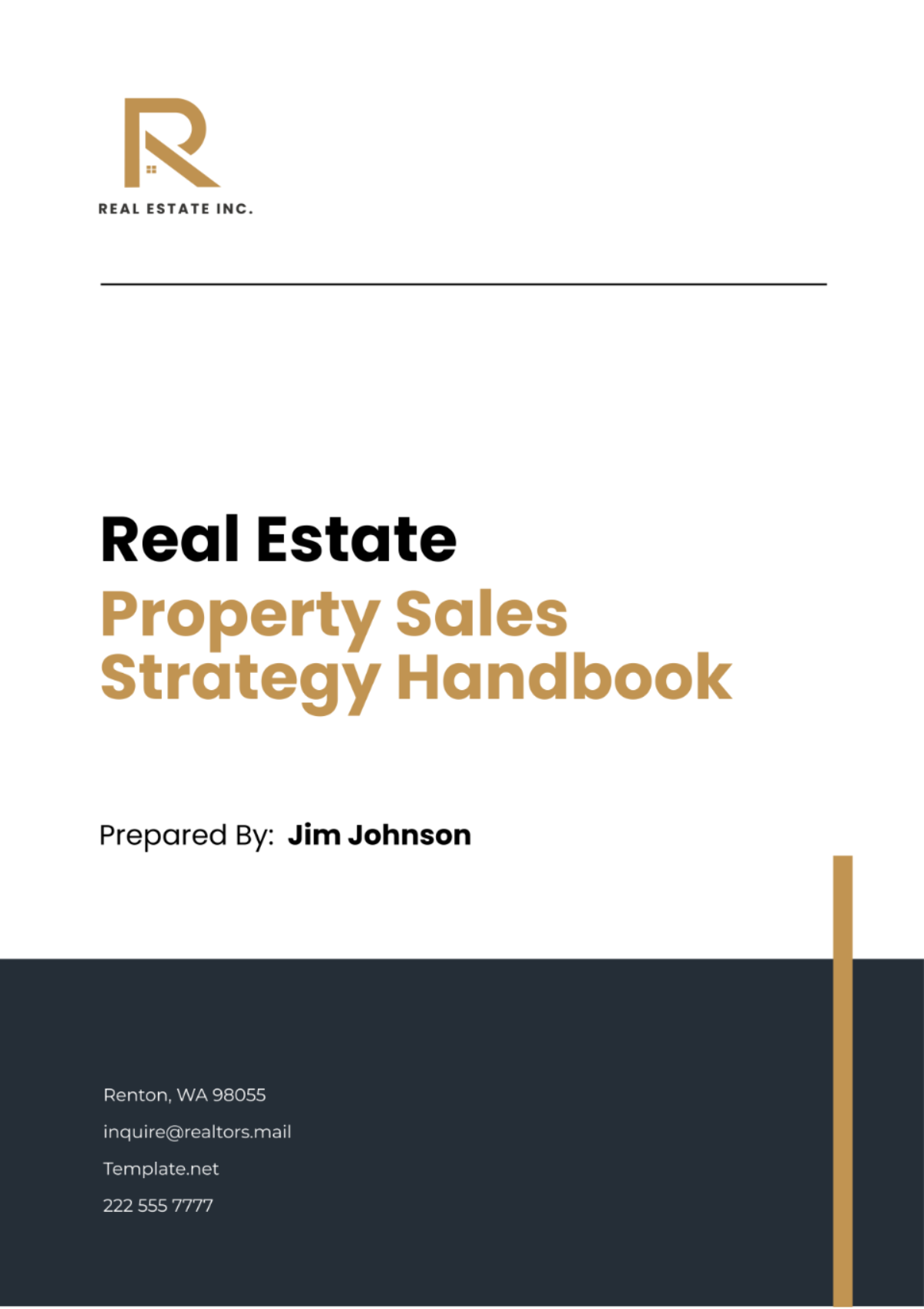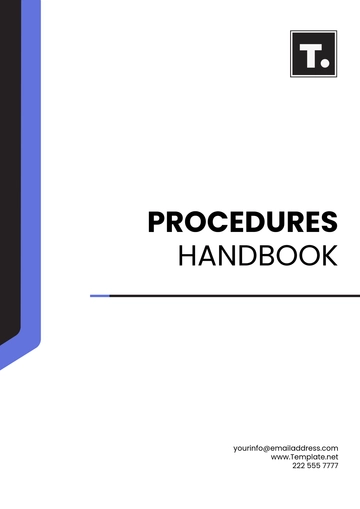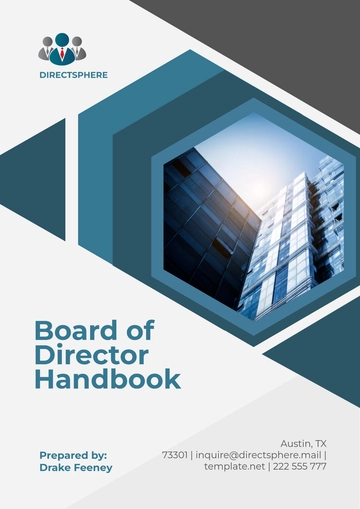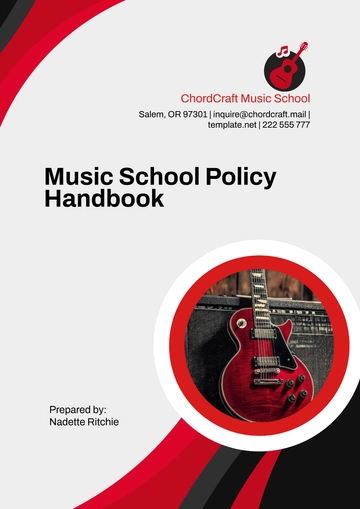Free Real Estate Property Sales Strategy Handbook

I. Introduction
Welcome to the Real Estate Property Sales Strategy Handbook! Whether you're a seasoned real estate professional or just starting in the industry, this handbook is your comprehensive guide to mastering the art of property sales. Let's embark on a journey together to explore effective strategies, proven techniques, and invaluable insights that will elevate your sales game and drive success in the competitive real estate market.
II. Understanding the Real Estate Market
Current Market Trends and Analysis
Maintain a well-informed understanding regarding the most recent trends that are shaping the real estate market. This may include changes happening in supply and demand, alterations in price levels, as well to become aware of the latest opportunities arising in the market.
Further, a thorough analysis is needed which examines important market data such as the median prices of homes, the average number of days the properties remain on the market before being sold, and the levels of available inventory. Possessing this analysis will enable the facilitation of gaining deeper insights into the dynamics of the local market.
Local Market Dynamics
Ensure that you gain a thorough understanding of the unique characteristics that define your local market. This involves being familiar with demographics particular to different neighborhoods, noting the housing preferences commonly seen among locals, and taking into consideration various economic factors that may directly influence decisions regarding buying and selling of properties.
Furthermore, you need to identify and keep a tab on key areas in which growth can be expected. Remain vigilant about upcoming developments, since these can potentially impact property values while also influencing market demand.
Identifying Target Demographics
Your target audience should be defined according to a range of factors. These factors should take into consideration their age, income level, preferences in lifestyle, as well as their current stage in life. By doing so, you can then adapt your marketing and sales tactics to have a significant and positive impact on your intended demographic segments.
This can be achieved by ensuring that your strategies align with the unique needs and preferences of the specific target demographic, which will help them resonate more effectively with your audience.
III. Prospecting and Lead Generation
Defining Your Target Audience
It is essential to engage in thorough market research in order to recognize and understand potential buyer and seller personas. This comprises of analyzing different factors such as demographic data, insights relating to their behavior, and psychographic profiles. Once this has been achieved, it is then vital to construct targeted prospecting strategies.
These strategies should be specifically adjusted to the distinct characteristics and preferences of each segmented audience. The main objective here is to ensure that the strategies align perfectly with the unique needs and preferences of the target personas, thereby increasing the chances of effective and efficient market penetration.
Prospecting Techniques
You should consider exploring a wide range of methods for prospecting. These can include but are not limited to activities such as participation in networking events, obtaining referrals, practicing cold calling, knocking on doors of potential clients, and also utilizing online platforms that are designed for the generation of leads.
It's advisable to prioritize those activities that provide the highest return on investment which also efficiently align with the preferred channels of communication of your target audience.
Leveraging Technology for Lead Generation
In the modern digital age, leveraging the capabilities of advanced technology tools, as well as robust digital marketing platforms, can greatly streamline and enhance your lead generation efforts. By taking full advantage of customer relationship management (CRM) software, you can effectively manage your interactions with current and potential customers, thereby increasing the efficiency of your marketing efforts. Furthermore, initiating and running regular email marketing campaigns is an excellent way to establish direct channels of communication with your leads, providing them with valuable information about your products or services and subsequently persuading them to convert into paying customers.
In addition, making use of modern social media advertising can efficiently expand your reach to potential customers. By advertising on popular social media platforms like Facebook, Twitter, Instagram, LinkedIn, and others, you can engage with a large number of internet users who could potentially be interested in what you have to offer.
Networking Strategies
It is crucial to cultivate a robust network comprising a variety of essential contacts within the industry. This includes fellow professionals involved in real estate, mortgage lenders who would be essential in financial transactions, attorneys who are armed with the necessary legal knowledge, contractors who carry out the primary construction processes, and influencers within the community who hold notable sway and can impact business positively. To further bolster your network, participation in significant networking events is strongly advised, allowing you to engage with other industry professionals and form potentially beneficial relationships. Attending industry conferences can provide invaluable insights into the latest developments in the field, ensuring you stay informed and aligned with current trends. Involvement in professional associations is also encouraged, it provides an opportunity to exchange referrals, enhancing the possibility of mutual business growth. Through consistent interaction and engagement with these various aspects of the industry, you will be able to maintain a fresh, informed perspective on the trajectory of the real estate sector, placing you in an advantageous position within the market.
IV. Effective Communication Skills
Active Listening Techniques
By developing your skills in active listening, you can excel in areas like focusing on the speaker while they're talking, maintaining a consistent eye contact to show your undivided attention towards them, and paraphrasing their words back to them. This paraphrasing will be proof that you have understood what they are trying to convey fully and properly.
Additionally, it is advantageous and beneficial to ask questions that have an open-ended nature, since this kind of questioning technique will motivate your clients to be more transparent and share more openly about their thoughts, concerns, and objectives they want to achieve.
Building Rapport with Clients
To establish a strong and meaningful rapport with clients, it is essential to express a sincere and genuine interest in their needs. This can be accomplished by communicating attentively and expressing empathy towards their personal situations and challenges. Building trust is a crucial component of this process, which can be achieved through transparent communication, honesty, and the consistent display of integrity in all interactions. It's also important to personalize these interactions to strengthen the connection with each client further.
This involves paying attention to their individual preferences, adjusting to their preferred style of communication, and taking into account their unique personality traits. This approach will ensure a more tailored and effective communication strategy for each client, thereby fostering a deep, meaningful, and productive relationship.
Clear and Concise Communication
It is important to pass on information in a manner that is both clear and succinct. Speak plain English, avoiding the use of industry jargon or technical language that the clients might find confusing, intimidating or overwhelming.
To further simplify complex information and ensure that the clients grasp concepts more easily, the use of visual aids such as charts, graphs, and property brochures is suggested. These visual materials can serve as effective communication tools in conveying various ideas and data, thus promoting greater understanding on the part of the clients.
Handling Client Objections
During the sales process, it is wise to anticipate common objections that clients may raise. These objections could be related to a host of issues including concerns related to pricing, issues regarding the condition of the property, or uncertainties linked with market fluctuations. Instead of waiting for clients to raise these objections, a more effective strategy is to address these matters proactively.
To tackle the pricing concerns, you can provide relevant information that justifies the proposed cost. Also, to address property condition issues, offering solutions or alternatives would be appropriate. When it comes to uncertainties related to the market, reassuring your clients about the intrinsic value and long-term benefits of the property or transaction would be essential. Such client-centric approach would not only foster trust but also enhance the chances of a successful sale.
V. Marketing Strategies
Creating Compelling Property Listings
Develop appealing and engaging property listings that strongly emphasize the key features, advantageous amenities, and attractive selling points so as to grab the attention of potential buyers. It's critical to employ vivid and descriptive vocabulary in the description in order to meticulously depict the property. Also, the use of high-quality imagery contributes significantly to demonstrating the real charm and appeal of the property with precision. In addition, incorporating virtual tours into the marketing strategy can significantly enhance the prospective buyer's experience by providing them with an immersive and realistic understanding of the space and the layout of the property.
The combination of these elements would play a crucial role in highlighting the unique attributes of the property and in creating a lasting and memorable impression on the prospective buyer, thereby increasing the chances of property conversion.
Utilizing Digital Marketing Channels
Take advantage of the potential of several digital marketing channels which include but are not limited to your website, various social media platforms, e-mail newsletters, and online advertising. These can serve as effective outlets to expand your reach to a broader audience of possible buyers and potential clientele. It's crucial that you develop, with attention and intricacy, a marketing strategy that is cohesive and well-integrated.
Utilizing multiple channels in your strategy is essential. This approach is not merely about expanding your visibility in the digital space. It's also about maximizing engagement with your audience and significantly increasing the generation of leads. With a comprehensive plan, all these components will work in harmony, helping you establish a solid online presence and ultimately bolster your business's potential for growth and success.
Traditional Marketing Tactics
Delve into the realm of traditional marketing tactics such as print advertising, engaging in direct mail campaigns, and exhibiting tailor-made local signages. These strategies can act as significant ingredients in supplementing your digital marketing endeavours. Furthermore, they can be used effectively to target specific geographic regions or demographic sections that align with your business objectives. This could potentially increase the overall efficacy of your marketing efforts.
In addition, capitalizing on partnerships with local businesses, community entities, and media channels can unravel numerous benefits. Some of these benefits include the enhancement of your marketing message’s visibility, and the considerable expansion of your brand’s outreach potential. This approach is a strategic move to increase customer engagement and ultimately, drive your business growth.
Hosting Successful Open Houses
Consider planning and executing successful open houses that could potentially draw in several qualified buyers as well as create a heightened interest in the property. An effective way to do this could be to aim for a welcoming atmosphere. This can be achieved by staging the property effectively, and making sure it shows off its best features. In addition, providing informative materials and brochures can be a useful tool to educate visitors about the property.
This also opens up the opportunity for meaningful and productive conversations. By doing so, potential buyers could feel more at ease and be more prone to engage in conversations about the property. This may increase the likelihood of successful sales.
VI. Property Presentation and Staging
Tips for Effective Staging
Maximize the property's appeal by strategically staging each room to highlight its functionality and potential. Consider hiring a professional stager or investing in quality staging furniture and accessories to create inviting spaces that resonate with buyers. Pay attention to details such as lighting, decor accents, and layout to ensure a cohesive and visually appealing presentation.
Highlighting Property Features and Benefits
Identify the unique selling points of the property, such as its location, architectural details, or amenities, and emphasize these in your marketing materials and property presentations. Showcase how these features benefit potential buyers, whether it's the convenience of a nearby school or the luxury of a spa-like bathroom. By effectively communicating the value proposition of the property, you can capture buyers' interest and differentiate it from competing listings.
Professional Photography and Videography
Investing in professional photography and videography is essential for creating visually stunning marketing materials that attract buyers' attention. High-quality images and videos can significantly enhance the online presentation of the property, increasing engagement and generating more leads. Work with experienced photographers and videographers who understand how to capture the property's best angles, lighting, and composition to create compelling visual narratives that leave a lasting impression on potential buyers.
Virtual Tours and 3D Walkthroughs
Offering virtual tours and 3D walkthroughs allows prospective buyers to explore the property remotely and gain a comprehensive understanding of its layout and features. These immersive experiences provide a sense of presence and allow buyers to visualize themselves living in the space, increasing their emotional connection to the property. Enhance virtual tours with interactive elements such as hotspots, floor plans, and additional multimedia content to provide a rich and engaging viewing experience that sets your listings apart from the competition.
VII. Negotiation Techniques
Understanding Client Needs and Motivations
Effective negotiation begins with a deep understanding of your client's goals, priorities, and motivations for buying or selling a property. Take the time to listen actively and ask probing questions to uncover their underlying needs and concerns. By empathizing with your client and aligning your negotiation strategy with their objectives, you can build trust and rapport while achieving mutually beneficial outcomes.
Setting Realistic Expectations
Help your clients set realistic expectations by providing them with honest and transparent insights into the current market conditions and comparable sales data. Educate them about the potential challenges and opportunities they may encounter during the negotiation process, such as competing offers or property inspections. By managing your clients' expectations from the outset, you can mitigate disappointments and facilitate smoother negotiations.
Win-Win Negotiation Strategies
Strive to create win-win outcomes that satisfy the interests of both parties involved in the transaction. Focus on uncovering common ground and exploring creative solutions that address everyone's needs and priorities. Adopt a collaborative mindset and maintain open lines of communication to foster trust and goodwill throughout the negotiation process.
Overcoming Common Negotiation Challenges
Anticipate and prepare for common negotiation challenges, such as price disagreements, repair requests, or appraisal issues, before they arise. Develop contingency plans and alternative strategies to navigate these challenges effectively while keeping the transaction on track. Maintain a calm and professional demeanor, and rely on your negotiation skills and experience to find mutually acceptable resolutions that keep all parties satisfied.
VIII. Transaction Management
Managing Paperwork and Documentation
Organize all necessary paperwork and documentation meticulously to ensure compliance with legal and regulatory requirements. Use transaction management software or cloud-based platforms to securely store and manage documents, making them easily accessible to relevant parties. Create comprehensive checklists to track the progress of each transaction and ensure that all required paperwork is completed accurately and on time.
Coordinating with Lenders, Inspectors, and Attorneys
Facilitate seamless communication and collaboration between various stakeholders involved in the transaction, including lenders, home inspectors, appraisers, and attorneys. Coordinate inspection appointments, appraisal deadlines, and loan processing milestones to keep the transaction on schedule. Proactively address any issues or concerns that arise during the process, working closely with all parties to find timely resolutions and prevent delays.
Ensuring Compliance with Legal and Regulatory Requirements
Stay informed about local, state, and federal regulations governing real estate transactions to ensure compliance at every stage of the process. Verify that all contracts, disclosures, and agreements adhere to legal standards and are executed correctly. Consult with legal professionals or compliance experts as needed to address any compliance-related questions or concerns that may arise.
Timely Follow-Up and Client Updates
Keep clients informed and engaged throughout the transaction by providing regular updates on the progress of their sale or purchase. Communicate important milestones, such as contract signings, inspections, and loan approvals, in a timely manner. Address any questions or concerns promptly and proactively, demonstrating your commitment to providing exceptional service and ensuring a positive experience for your clients.
IX. Closing Strategies
Preparing Clients for Closing
Guide your clients through the closing process, explaining the necessary steps and documentation required for a successful closing. Provide clear instructions on how to prepare for closing day, including any funds needed for closing costs and the items they should bring to the closing appointment. Offer reassurance and support to alleviate any anxiety or uncertainty they may have about the closing process.
Addressing Last-Minute Concerns
Anticipate and address any last-minute concerns or issues that may arise in the days leading up to closing. Conduct a final walkthrough of the property with your clients to ensure that it is in the agreed-upon condition and that any repairs or agreed-upon improvements have been completed satisfactorily. Be proactive in resolving any outstanding issues or discrepancies to prevent last-minute surprises that could jeopardize the closing.
Facilitating a Smooth Closing Process
Work closely with the closing agent, title company, and other involved parties to ensure a seamless closing process. Double-check all documents and paperwork for accuracy and completeness, and verify that all necessary funds are available and accounted for. Provide support and guidance to your clients throughout the closing appointment, answering any questions they may have and ensuring that they understand each document they are signing.
Celebrating Client Successes
Celebrate the successful closing of the transaction with your clients, acknowledging their achievement and expressing gratitude for the opportunity to assist them in reaching their real estate goals. Provide a thoughtful closing gift or gesture as a token of appreciation for their trust and confidence in your services. Follow up after closing to express your continued support and to reinforce the positive relationship you have built with your clients.
X. Post-Sale Follow-Up and Client Retention
Showing Appreciation to Clients
Demonstrate your gratitude to clients for their business by sending personalized thank-you notes or emails expressing your appreciation. Consider hosting a client appreciation event or offering exclusive discounts or perks as a way of saying thank you for their loyalty and support. Showing genuine appreciation fosters goodwill and strengthens the bond between you and your clients.
Soliciting Feedback and Reviews
Seek feedback from clients about their experience working with you, soliciting honest opinions and suggestions for improvement. Encourage clients to leave reviews or testimonials on your website or social media platforms, highlighting their positive experiences and satisfaction with your services. Positive reviews and testimonials serve as valuable social proof and help attract future clients to your business.
Staying Connected for Future Opportunities
Maintain regular communication with past clients to stay top-of-mind and position yourself as their go-to real estate expert. Provide valuable resources, such as market updates, home maintenance tips, or neighborhood insights, to keep clients informed and engaged. Be proactive in reaching out to past clients to inquire about their evolving real estate needs and to offer your assistance with any future transactions or referrals.
Building Long-Term Client Relationships
Focus on building long-term relationships with clients based on trust, integrity, and mutual respect. Invest time in getting to know your clients on a personal level, understanding their goals, preferences, and life stages. By demonstrating a genuine interest in their well-being and success, you can cultivate lasting connections that extend beyond the transaction and result in repeat business and referrals for years to come.
XI. Professional Development Resources
Continuing Education Opportunities
Explore a variety of continuing education options to enhance your knowledge and skills in real estate sales. Attend workshops, seminars, and webinars offered by reputable organizations and industry experts. Pursue relevant certifications or designations to demonstrate your expertise and commitment to professional development.
Recommended Books and Publications
Expand your understanding of real estate sales by reading books and publications authored by industry leaders and experts. Explore topics such as negotiation techniques, marketing strategies, and client relationship management. Look for publications that offer practical insights, actionable advice, and real-world case studies to apply to your own sales practice.
Networking Events and Conferences
Participate in networking events, conferences, and industry gatherings to connect with fellow real estate professionals and exchange ideas and experiences. Attend local networking groups, industry conferences, and real estate association meetings to expand your professional network and stay informed about industry trends and developments. Engage in meaningful conversations, share best practices, and build relationships that can lead to valuable collaborations and referrals.
Online Learning Platforms
Take advantage of online learning platforms and resources to access a wide range of educational materials and courses at your own pace. Explore platforms such as Udemy, Coursera, and LinkedIn Learning for courses on sales techniques, negotiation skills, digital marketing, and more. Leverage multimedia resources such as videos, podcasts, and interactive tutorials to enhance your learning experience and acquire new skills that will propel your real estate sales career forward.
XII. Conclusion
Congratulations on completing the Real Estate Property Sales Strategy Handbook! We hope this comprehensive guide has equipped you with valuable insights, strategies, and resources to excel in your real estate sales endeavors. Remember to apply the knowledge and techniques you've learned consistently and adapt them to your unique market and client needs. By implementing effective sales strategies, providing exceptional service, and fostering long-term client relationships, you can achieve success and thrive in the dynamic and rewarding world of real estate sales. Thank you for joining us on this journey towards real estate sales excellence!
- 100% Customizable, free editor
- Access 1 Million+ Templates, photo’s & graphics
- Download or share as a template
- Click and replace photos, graphics, text, backgrounds
- Resize, crop, AI write & more
- Access advanced editor
Introducing the Real Estate Property Sales Strategy Handbook Template from Template.net! This editable and customizable resource is your ultimate guide to mastering property sales. With its AI Editor Tool, tailor strategies to your market and client needs effortlessly. Elevate your sales game with this comprehensive handbook, designed to help you succeed in the competitive real estate industry.





























